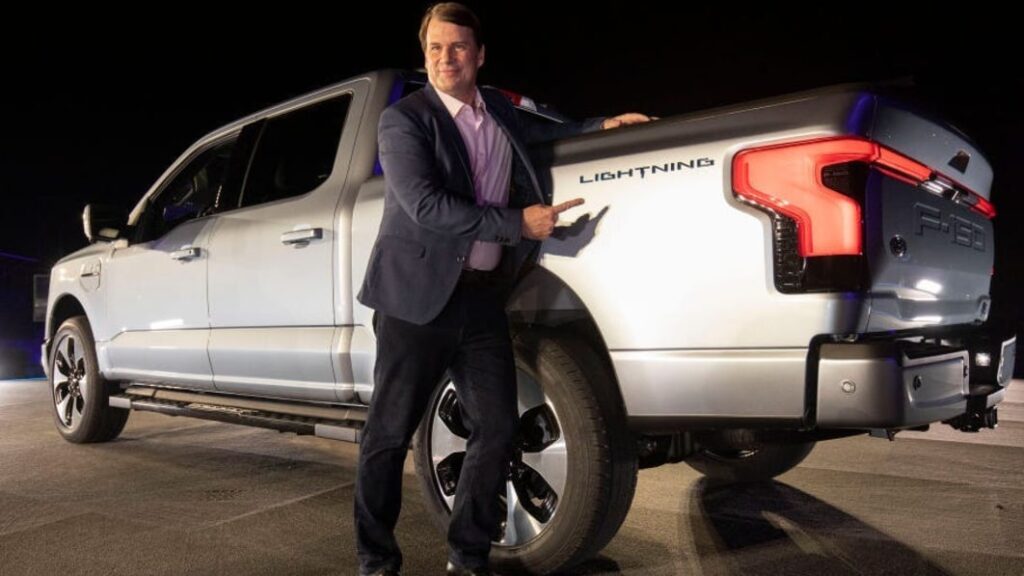Ford thinks bigger is not always better, especially for EVs

When it comes to EVs, bigger is not always better, according to Ford’s CEO.
Jim Farley told investors Ford needs to pivot from giant trucks to smaller, more affordable EVs.
The Detroit automaker is betting on cheaper models as it tries to catch up with Tesla.
Ford is backing away from giant electric trucks and betting on smaller EVs to become a more dominant player in this market and catch up with the likes of Tesla and China’s EV players.
CEO Jim Farley told investors in an earnings call on Wednesday that when it comes to EVs, bigger is not always better — and said that the company’s future would depend on its ability to build smaller, cheaper electric vehicles.
“We believe smaller, more affordable vehicles are the way to go for EV in volume,” said Farley.
The auto executive, who has previously said Americans need to shake their addiction to “monster vehicles,” explained that electric vehicles operated under a completely different set of rules from Ford’s traditional business selling gas guzzlers.
“In ICE [Internal Combustion Engine], a business we’ve been in for 120 years, the bigger the vehicle, the higher the margin,” Farley said.
“But it’s exactly the opposite for EVs. The larger the vehicle, the bigger the battery, the more pressure on margin because customers will not pay a premium for those larger batteries,” he added.
Farley spoke after the Detroit automaker posted disappointing Q2 earnings, with shares falling by as much as 12% after market close.
The company continues to lose money on its electric vehicle business amid an industry-wide slowdown in demand for EVs. This area of the business lost $1.14 billion from April through June.
Farley is betting that a new EV platform built on smaller, more affordable vehicles will help change that, and propel the company ahead of Tesla and its Chinese rivals.
Ford has quietly created a secretive “skunkworks” team, reportedly based in California, to build this new platform. The first vehicles are expected to enter production in the next two and a half years.
Currently, Ford’s flagship EV is the F-150 Lightning pickup, a Tesla Cybertruck rival that weighs between 6,000 and 6,900 pounds.
Farley told investors that larger EVs would remain “part of the picture” for the company, but that Ford would have to be “really careful” about when and how it releases them.
Farley has been outspoken that the EV industry needs to move away from hulking pickups if it is going to be successful, however.
Speaking at the Aspen Ideas Festival in June, Farley said that electric versions of these vehicles are too heavy to ever be truly affordable.
“We have to start to get back in love with smaller vehicles. It’s super important for our society and for EV adoption,” Farley said.
“We are just in love with these monster vehicles, and I love them, too, but it’s a major issue with weight,” he added.
Ford declined to comment further when contacted by Business Insider.
Do you own an EV or have a tip? Get in touch with this reporter via email at tcarter@businessinsider.com.



